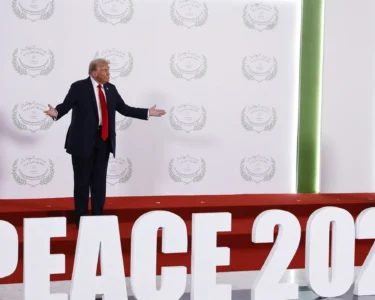"I consider impious and detestable the maxim that in politics the majority of a people has the right to do everything; and yet I hold that the origin of power is to be placed in the will of the majority. Is there any contradiction between these two propositions?"
These are the words of Alexis de Tocqueville.The problem posed by the author of the Democracy in America almost two centuries ago is dramatically relevant today. There are democracies in the West in which the sacrosanct principle of the will of the majority is used by the elected to restrict the spaces of freedom and participation.Without resorting to an outright coup, the majority does what it wants, seizes all power and undermines the principle of the separation of powers and respect for minorities at its root If the majority that expresses the government reduces Parliament to a replicant of the government, in fact the Executive and the Legislative end up being the same thing. If the majority then uses its parliamentary strength to elect guarantee authorities by imposing them on oppositions, democracy becomes totally illiberal. If this overwhelming power also extends to the election of the President of the Republic and the majority of the Constitutional Court ...democracy is just a mask of the new despotism.
The risk of this happening is inherent in the degeneration of our democracies increasingly enslaved to the communicative and aggressive logic of social networks that have imposed their models on both television and parliamentary debates. Wall-to-wall democracy is raging, a " pugilistic" democracy in which those who are stronger have the right to knock out those who are weaker.
Exacerbating this situation in Italy is the constitutional reform that introduces the Premierate. The most dangerous aspect of this reform is that, for the first time in a democratic constitution, the right of those who are chosen by the people to lead the Executive to be able to have an absolute and not a relative majority is enshrined. It seems like a detail, but it is a dangerous choice that transforms the Italian Premierate into a regime with a 'very high concentration of power that does not exist in any other democratic system.
The President of the United States has no constitutional guarantee of having control of the Senate and House of Representatives. The President of the French Republic is elected separately by the National Assembly in which there may be a majority hostile to him. The British Prime Minister has no direct popular legitimacy because it is the party that elects him its leader and-if the party wins-sends him to Downing street and can also replace him: there is no popular investiture. The German Chancellor is elected by Parliament and he has to patiently build a majority. Instead, the future Italian Premier will have both popular investiture and the guarantee of having an absolute majority in Parliament loyal to him with an electoral law that will provide a prize to artificially obtain the absolute majority that the party( or coalition )has failed to win. The famous law, unfairly called "fraud," in 1953 wanted to award 65% of the seats to the party or coalition that won at least 50% of the votes plus one.
If the premierate reform were to pass, the Constitution would suffer a not insignificant blow. Our Charter was written when there was a proportional mentality whereby all parties were entitled to have a say in choices concerning guarantee institutions, such as the President of the Republic and the Constitutional Court. As Stefano Passigli recalled on the Evening Courier of Oct. 12,2024, the first wound occurred when in the Second Republic winning majorities appropriated the presidents of the two branches of parliament. A second vulnus occurred with majority electoral laws "the majoritarian -Writes Passigli-allows even with 30-35% of the vote-and even, as was the case in the last Italian election, with fewer popular votes than the opposition-to win more constituencies and achieve an absolute majority of seats."
With the reform of the Premierate, the circle will finally close: a relative majority supporting a Premier elected directly by the people will become an absolute majority and will be able to impose its men even in the guarantee institutions.
In the 2022 elections, the center-right won 44% of the vote and won-without a majority prize-56% of the seats in the Senate and 59% of the seats in the House. To elect the President of the Republic after the third ballot today, 50% plus one is enough. Under the Premieranno reform, an absolute majority would be required on the sixth ballot.
But if with the majority prize the Premier elected by the people were guaranteed to have 60% of the seats in Parliament, we would have this scenario:Presidents of the House and Senate would go to the majority ( it is already so today);the President of the Republic would be an expression of the majority. 10 of the 15 members of the Constitutional Court would end up being an expression of the majority:5 would be appointed by the President of the republic homogeneous with the majority and 5 by the Parliament in which the majority can reach the required three-fifths. Adding to this occupation of key posts are presidents and members of the Antitrust Authority, the Communications Guarantee Authority, and the Consob, which would be the preserve of a catch-all majority.
The Constitution ,in fact, would be irreparably disrupted. Italy still has time to avoid this havoc.





